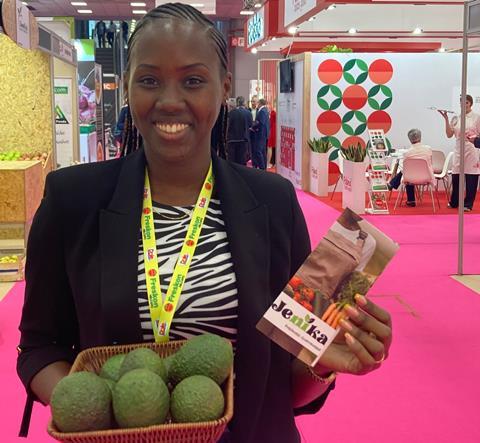Burundi avocados have a mission to reach international markets, with Tanzania and Kenya between the landlocked country and the Indian Ocean, but Jenika is looking for direct partners to ensure better returns for its growers
Burundi producer-exporter Jenika produces its green beans almost exclusively for the local market, but its Hass avocados are nearly entirely for export, reaching shelves in Europe and the Middle East.
“We have our own avocado farm with 500 trees,” Jenika founder and CEO Jessy Katia Niyonkuru told Fruitnet. “When the demand for avocados is especially high, we also work with other growers.”

Since the demand for avocados is there, the company does have plans to plant more trees, but there are other priorities in the shorter term, according to Niyonkuru. “We are looking for better contracts with better prices for the growers,” she said. “Most of our produce ends up in Europe and the UAE, but it travels through Tanzania and Kenya, so I’m looking for direct partners.”
The cheap cost of labour may be an advantage in Burundi, but it is also the company’s ambition to ensure fair wages for all workers. “This should be part of a company’s mission,” said Niyonkuru. “I want to do something that benefits people for generations and helps to develop our communities, not just deliver short-term profit.”
At the moment, of course, there are challenges in the Red Sea. “This is a problem for shipments from East Africa, increasing the journey time,” she said. “For frozen vegetables, the extra shipping time can be an issue.”
There is also the issue of climate change. A report by Christian Aid revealed that avocado production was under threat from climate change, with avocado regions expected to decline by 14-41 per cent by 2050.
Jolis Bigirimana, an avocado farmer and president of Farmer’s Pride Burundi, told Sky News that climate change was a “huge problem, especially for avocado growers” in the country.
“We are experiencing hot temperatures, heavy rain and erosion,” he said, “which is having a terrible impact on farmers’ productivity and their income. It now costs us a lot of money to water our crops.



